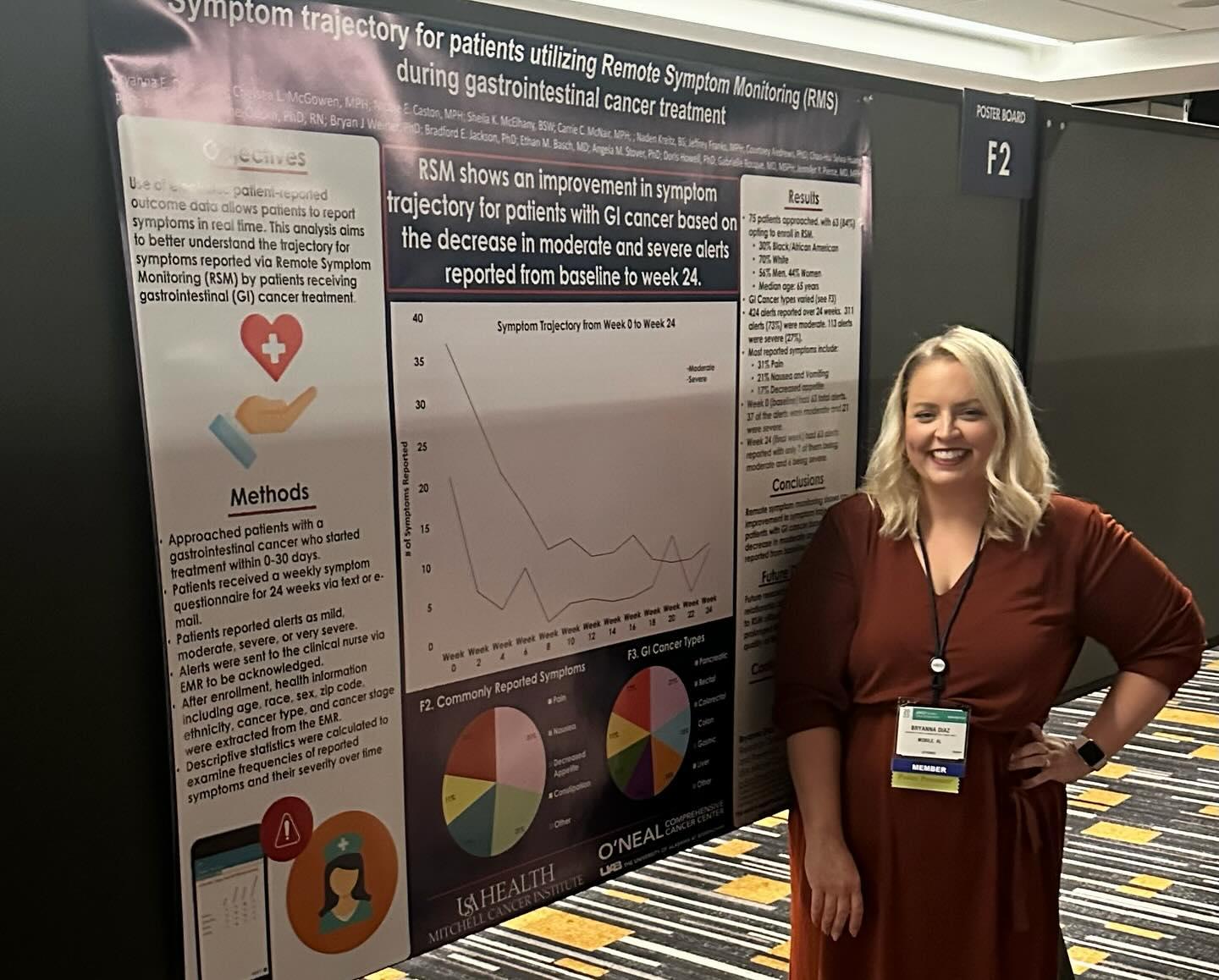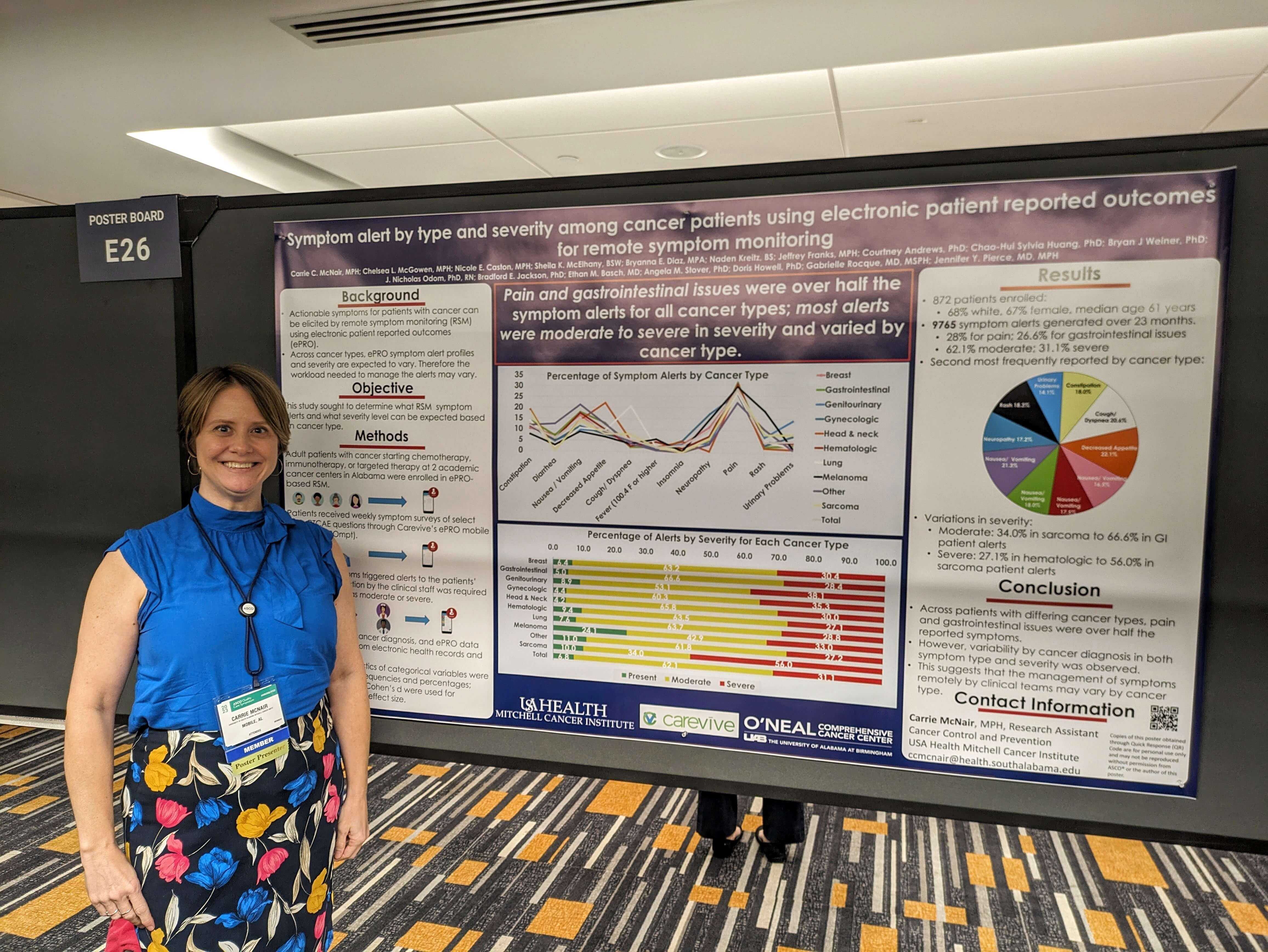
Researchers present findings on remote patient monitoring
Mitchell Cancer Institute researchers analyzed the impact of remote symptom monitoring for cancer patients.
By Carol McPhail
[email protected]
Cancer Control and Prevention at the USA Health Mitchell Cancer Institute recently presented research findings on the use of remote symptom monitoring for patients at the American Society of Clinical Oncology’s Quality Care Symposium Oct. 28-29 in Boston.

The researchers utilized digital health tools developed by the technology company Carevive Systems to collect information from cancer patients about their symptoms. They relayed alerts about worsening symptoms to the patients’ care team in real time and analyzed the results.
Bryanna Diaz, M.P.A., research coordinator in the Division of Cancer Control and Prevention, presented a poster titled “Symptom trajectory for patients utilizing Remote Symptom Monitoring during gastrointestinal cancer treatment.”

In the study, patients with gastrointestinal cancer who had just started treatment received weekly symptom questionnaires by text or email for 24 weeks. Patients reported symptom alerts characterized as mild, moderate, severe or very severe, and these alerts were sent to the clinical nurse through electronic medical records. The research showed that self-reported symptoms improved during the study period.
“Remote symptom monitoring shows an improvement in symptom trajectory for patients with GI cancer based on the decrease in moderate and severe alerts over time,” Diaz said. “We hope to conduct future research to determine relationships between symptom improvement and remote symptom monitoring utilization as well as the benefits of prolonged remote symptom monitoring via patient-reported quality of life and survival outcomes.”
Carrie McNair, M.P.H., research assistant, presented research titled “Symptom alert by type and severity among cancer patients using electronic patient-reported outcomes for remote symptom monitoring.”
In the study, 872 cancer patients starting treatment were enrolled in remote symptom monitoring through weekly surveys. The research found that pain and gastrointestinal issues made up more than half of the symptom alerts for all cancer types and that 93% of the alerts were moderate or severe, meaning the care teams could take immediate action to alleviate the symptoms.
“The goal of remote symptom monitoring is to help patients manage their symptoms during the course of their treatment,” McNair said. “This research also showed the types of symptoms our patients experience by cancer type, with pain the most frequent, no matter the type of cancer or treatment.”
The American Society of Clinical Oncology is the world’s leading professional organization for physicians and oncology professionals caring for people with cancer.



